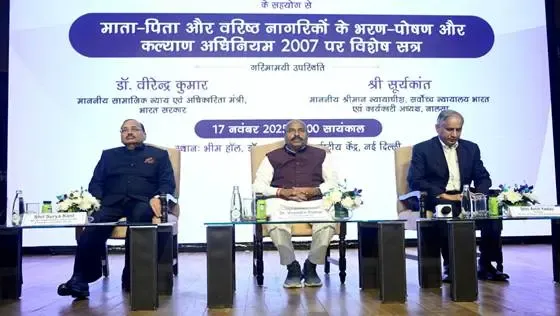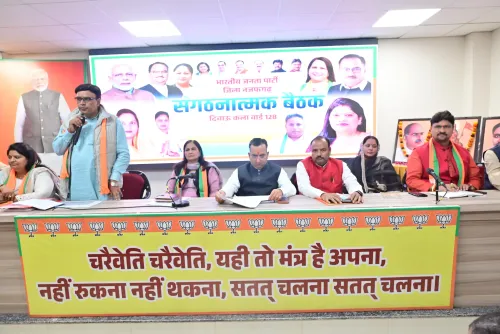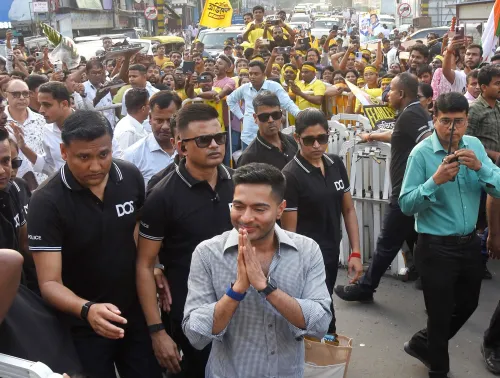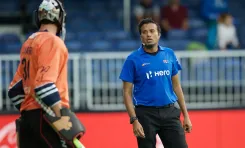How Can We Educate the Elderly on Their Maintenance Rights?

Synopsis
Key Takeaways
- Importance of educating elderly citizens about their rights
- Government initiatives support senior citizens' welfare
- Community involvement is crucial for enforcement of rights
- Legal obligations of children towards elderly parents
- Projected increase in elderly population highlights urgency
New Delhi, Nov 18 (NationPress) The Union Minister of Social Justice and Empowerment, Virendra Kumar, recently emphasized the importance of informing the elderly about the legal obligations that children have to support their parents financially.
Speaking at a Special Session regarding the Maintenance and Welfare of Parents and Senior Citizens Act, 2007, held at the Ambedkar International Centre, he stated, "The Ministry is focusing on three core principles: Empowerment, Sensitivity, and Participation."
He pointed out that the government has implemented numerous initiatives aimed at enhancing the welfare of senior citizens. For instance, under the Rashtriya Vayoshri Yojana, over 700,000 elderly individuals have received assistive devices and aids.
Furthermore, emotional support is accessible through Elderline, a toll-free service at 14567. The government is also providing health insurance coverage of ₹5 lakh for seniors aged 70 and above.
This session, organized in partnership with the National Legal Service Authority (NALSA), was intended to raise awareness about the legal rights of senior citizens, the policies supporting these rights, and the community's role in enforcing them at both the individual and collective levels.
The MWPSC Act, 2007 establishes a legal framework to safeguard the welfare and rights of senior citizens, mandating that children and specified relatives provide for their basic needs, including a monthly maintenance allowance.
Justice Surya Kant, a Supreme Court Judge and Executive Chairman of NALSA, remarked that as society evolves, there has been a noticeable decline in the attention and respect afforded to elderly individuals amid rapid technological advancements.
He advocated for solutions grounded in existing frameworks, asserting that the Maintenance and Welfare of Parents and Senior Citizens Act, 2007, is a crucial piece of legislation that underscores society's obligation toward its seniors.
Amit Yadav, Secretary of Social Justice and Empowerment, noted that the elderly population in India is predicted to increase from 103.8 million in 2011 to 340 million by 2050.
“This demographic transition necessitates that the government ensures senior citizens are able to live with dignity, security, and meaningful engagement,” he stated.
He also highlighted the challenges the elderly face due to digital and financial transitions, urging the younger generation and communities to step up and assist them.









